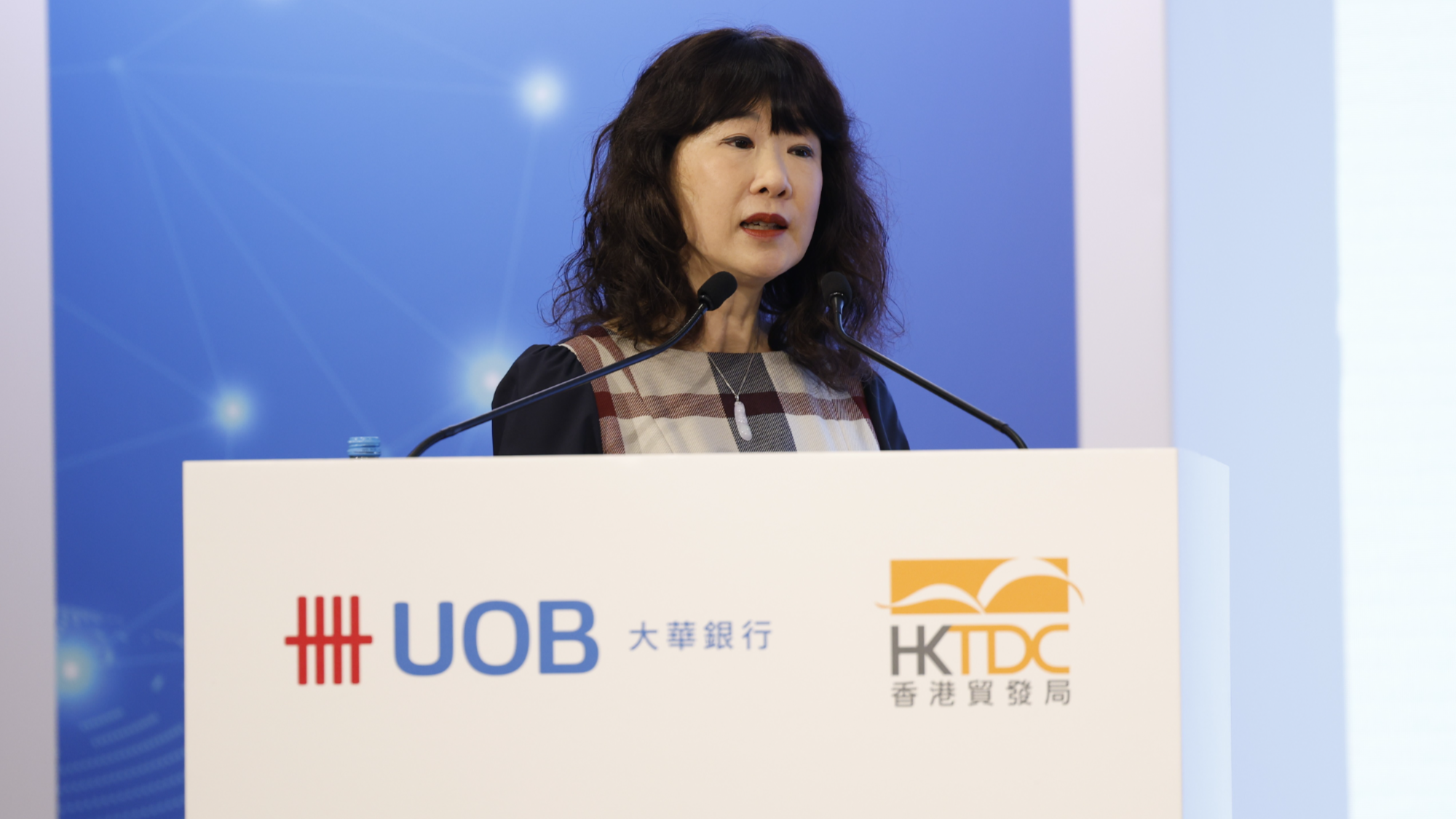
Enterprises in the Guangdong-Hong Kong-Macao Greater Bay Area (GBA) are increasingly taking a shine to ASEAN countries as companies press ahead to expand overseas markets and diversify their supply chain, according to a report released on Thursday.
Viewing the bloc as a key provider of opportunity and solutions for their growth, 84 percent of the surveyed enterprises indicated plans to engage in potential production and sourcing activities within ASEAN countries, signaling strong faith in the region, which ranks just behind the Chinese mainland, the report showed.
The report, titled GBA Supply Chain Diversity: Enhancing Connectivity Among ASEAN, Hong Kong, and the Mainland, was jointly released by the Hong Kong Trade Development Council (HKTDC) and the United Overseas Bank. It was conducted in the third quarter of 2024, offering insights from more than 600 enterprises in the GBA.
READ MORE: HK can promote and benefit from stronger GBA-ASEAN ties
The report revealed that Singapore, Malaysia, and Indonesia remain the businesses’ top preferences, yet countries such as the Philippines, Cambodia, Laos, and Brunei also received increased votes of confidence.
This broader distribution of interests points to the fact that China’s recent step-ups in high-level dialogues with different ASEAN countries are picking up momentum, said Irina Fan, the HKTDC’s director of research.
Fan said the increasing interest of businesses in ASEAN countries can be partially attributed to companies’ awareness of geopolitical uncertainties and economic implications, particularly those stemming from trade policies to be introduced by United States president-elect Donald Trump, who threatened to impose additional tariffs on Chinese goods.
Among respondents, 39 percent cited the positive China-ASEAN trade relations as the primary reason for their preference, anticipating colossal benefits on the wave of tightened regional cooperation under mechanisms such as the Regional Comprehensive Economic Partnership (RCEP) agreement and the Belt and Road Initiative (BRI).
“Nonetheless, other driving factors should not be underestimated,” Fan said. “For instance, the past pandemic has highlighted for businesspeople the importance of enhancing the resilience of the supply chain.”
More than 90 percent of the surveyed enterprises focused their attention to supply chain diversification, with 19 percent reporting satisfactory completion and 72 percent expressing full commitment to keeping up the work.
Commenting on the findings, Adaline Zheng, CEO of UOB Hong Kong, highlighted the alignment with the growing demand from GBA companies for tailored solutions and consulting services to support expansion into ASEAN markets.
Hong Kong is lauded as a GBA-ASEAN superconnector. The survey invited businesses to rate Hong Kong’s connectivity with the ASEAN bloc and that with mainland GBA cities. Both scores improved by about one point from last year, reaching about 8.5 out of 10.
The city’s status as an international financial and trade center made it an ideal facilitator for free capital flow between the GBA and ASEAN regions for businesses of both sides, said Zheng. As a stronghold of talents in procurement, sales, and financial and risk management, Hong Kong is also the leading destination for enterprises looking to set up their trade and treasury centers, she added.
The survey also showed good news for Hong Kong in terms of ESG (environmental, social and governance) and sustainability goals. A solid 81 percent of survey respondents stated active green and sustainable development programs are in place, marking a year-on-year increase of 16 percentage points.
READ MORE: Leung: HK can help ASEAN nations access mainland market
An average increase of about 25 percent was calculated based on enterprises’ reported two-year ESG investment plan, featuring a significant jump of relevant average budget allocation from HK$371,333 ($47,723) in 2023 to HK$462,535.
With the number of GBA enterprises totaling about 3 million, it is anticipated that the ESG-related sector will welcome an injection of up to roughly HK$1.3 trillion in investment, Fan said.
“Sizable interests were also expressed by respondents to both learn more about and use Hong Kong’s green professional services, as the city is doubling down on its development as a leading sustainable finance hub in Asia and striving to meet its goal of carbon neutrality before 2050,” Fan said.
Contact the writer at wanqing@chinadailyhk.com


